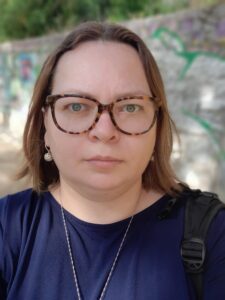The Association for the Advancement of Baltic Studies is pleased to announce that Irina Nicorici has been awarded the 2023-2024 Research Grant for Emerging Scholars.
The research grants of up to $6,000 support early-career scholars in any field of the Baltic studies. Proposals are evaluated according to the scholarly potential of the applicant and the quality and scholarly importance of the proposed work, especially to the development of Baltic Studies. Funds may be used for travel, duplication, materials, equipment, or other needs as specified.
The 2023 applications were evaluated by the AABS 2023-2024 Grants and Awards Committee consisting of AABS VP for Professional Development Dr. Kaarel Piirimäe, AABS President Dr. Dovilė Budrytė, and AABS Director-at-Large Dr. Daunis Auers. You can find a full list of 2023 awardees here.

Irina Nicorici is a sociologist of global migrations (PhD 2021, Rutgers) and a postdoctoral fellow at the Institute for Advanced Study New Europe College in Bucharest. She works on the dilemmas of citizenship and migration to/from the erstwhile Soviet space and is interested in how citizenship laws work both on the books and in action.
Defining Soviet Latvian Citizenship, 1953-1990
Project Overview
In the post-independence era, researchers puzzled over the vexed dilemmas of citizenship in Latvia, assuming that prior to 1990 human movements were minimal or even impossible. Yet my project questions this accepted wisdom to argue that the seeds of today’s mobility were planted over half a century ago—namely, between 1953 and 1990, during the presumptive period of Soviet isolation. To demonstrate those decades’ significance, I excavate the never before accessed evidence in the Latvian National Archive, the Ministry of Foreign Affairs collection. The AABS grant will facilitate travel, residency, data collection, processing and analysis in Riga, allowing me to address the neglected story of citizenship in Soviet Latvia with more attention and depth.
